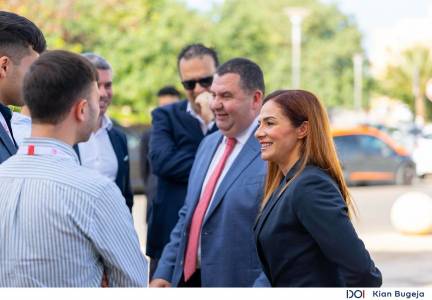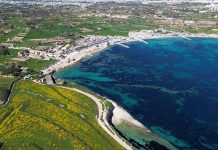The Cleansing and Maintenance Division, in collaboration with the University of Malta and the Malta Council for Science and Technology, has launched two innovative projects that uses artificial intelligence to strengthen public cleanliness efforts.
The AWIGS (Aerial Waste Identification Geolocation System) and AICOM (Artificial Intelligence to Optimise Cleansing in Malta) projects were launched by the Minister for the Environment, Energy and Public Cleanliness, Miriam Dalli, together with the Parliamentary Secretary for Public Cleanliness, Glenn Bedingfield.
The AWIGS project utilises advanced artificial intelligence systems and drone technology to detect and categorise illegally dumped waste in locations that are difficult to access, such as valleys, hills, and cliffs. The project also enables the identification of optimal cleaning routes and the classification of the materials requiring collection.
This technology, developed by the Department of Artificial Intelligence at the University of Malta under the leadership of Dr Dylan Seychell, has already been presented at international scientific conferences and is currently in an advanced stage of development.
The AICOM project, which is funded directly by the Cleansing and Maintenance Division, focuses on applying artificial intelligence to enhance the efficiency of the Division’s operations. The system will support improved route planning, resource analysis, and resource allocation within the Division. It also complements the AWIGS project by integrating the data collected through its systems, thereby further improving operational efficiency and the quality of services provided to the public.
“This is another Budget that has a clear message: a strong economy must always be linked to an improved quality of life and a more sustainable future for our children. We have listened, and continue to listen, to the public’s desire for more open spaces where families can enjoy time together. I am proud that, during this legislature, work has been completed on 62 open public spaces across Malta and Gozo, representing a tangible investment in our communities. Beautiful spaces require proper care. This is why the work of the Cleansing Division is essential, and I welcome any new technology that can assist our workers in carrying out their duties more efficiently and professionally,” said Minister Miriam Dalli.
Parliamentary Secretary for Public Cleanliness Glenn Bedingfield highlighted that this investment is possible thanks to today’s strong economy, which enables Government to enhance its operations with the aim of providing a better quality of life for citizens. “It is our responsibility to continually improve our operations, and the investment announced today reflects our commitment to providing the highest level of service,” he said.
These initiatives are expected to result in safer working conditions for Division employees, alongside more efficient use of resources and improved systematic monitoring.
Dr Dylan Seychell, a lecturer in the AI department at the University of Malta and leading a team of young scientists developing technology that helps to keep the environment clean explained how these projects achieve several goals: using the latest technology to improve the environment, strengthening research in Malta and giving young people the opportunity to work on this subject in Malta itself. “This technology uses a type of AI that analyses what the cameras on drones are seeing to identify and locate different types of waste in rural areas.”
Also present at this press conference were the Director General of the Cleansing and Maintenance Division Ramon Deguara, and Kevin Magro from Xjenza Malta.
![]()








